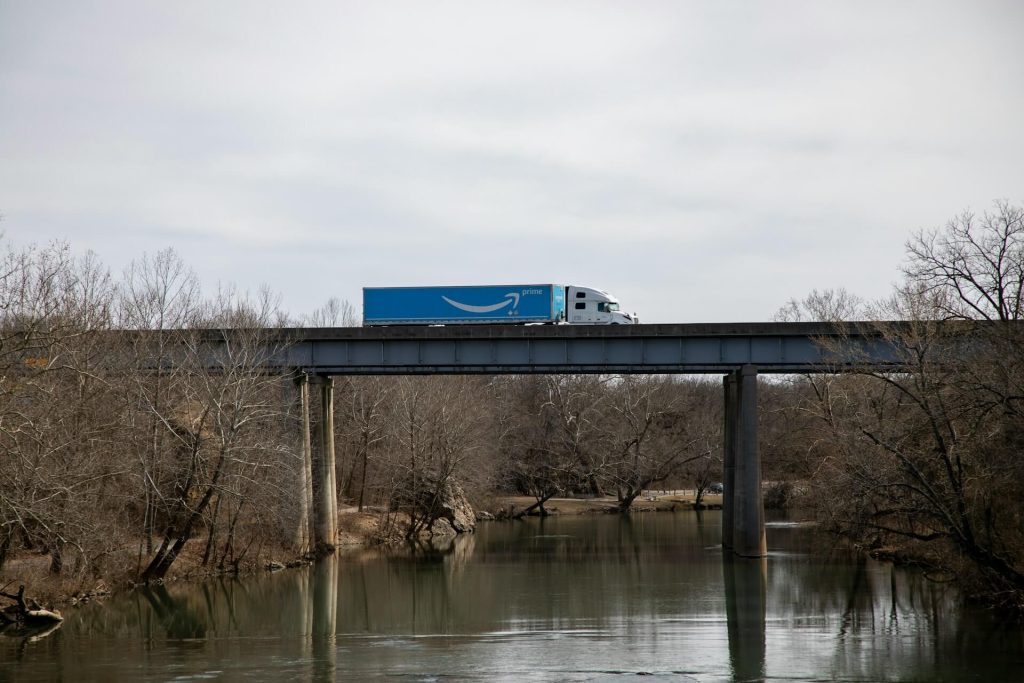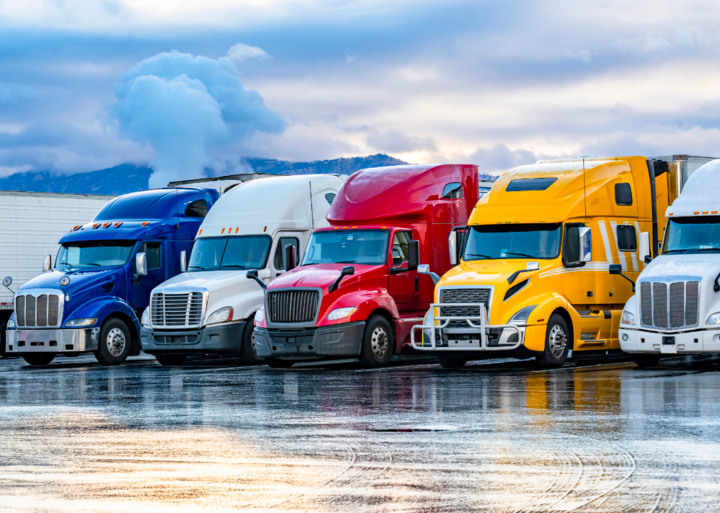
It’s no secret that the trucking industry is on the brink of a huge transformation with the imminent introduction of self-driving trucks. For the last decade or two, many have viewed autonomous trucks as a probable future invention that would launch at some point, but probably not in our lifetimes.
However, it does seem as though we are at the precipice of this intriguing new technology becoming a part of the transport industry. Like it or not, self-driving trucks are around the corner.
While we are not quite there yet, even the most pessimistic observer would have to concede that we are merely a few years away. As self-driving trucks gear up to hit the highways in greater numbers, the implications for truck parking businesses will be profound.
In this blog post, we shall consider the upcoming changes to self-driving trucks and how they will likely impact truck parking facilities and the broader trucking landscape.
But first, how close are we in terms of actually using self-driving trucks – and has the technology reached a point where it is ready for launch?
Current State of Self-Driving Truck Technology
Self-driving trucks are quickly advancing from mere concepts to tangible realities on our roads. Companies like Tesla, Waymo, and Daimler are at the forefront, pushing the boundaries of what’s possible with autonomous vehicle technology.
Tesla continues to refine its autopilot capabilities, aiming for a future where trucks navigate highways with minimal human intervention. Waymo, leveraging its experience in self-driving cars, has embarked on pilot projects to test the viability of autonomous trucks in real-world logistics operations.
Meanwhile, Daimler, traditionally a specialist in luxury rather than a tech pioneer, has advanced at an alarming speed after making the forward-thinking decision to collaborate with innovation hubs like Torc Robotics to improve the safety and reliability of their autonomous fleets.
As these technologies evolve, the integration of self-driving trucks into daily operations becomes not just possible but guaranteed. Make no mistake: the transport industry is very close to a dramatic shift that will radicalize truck parking demands and strategies.
But how will self-driving trucks affect parking?
Implications for Truck Parking Facilities
As self-driving trucks become a common sight on our highways, the landscape of truck parking will inevitably change. The automation of truck fleets suggests a shift in how and where trucks rest. Traditional truck stops might evolve or give way to high-tech parking solutions designed specifically for autonomous vehicles.
These new facilities will likely require sophisticated logistics systems to manage the inflow and outflow of trucks without human intervention. Additionally, the locations of these parking facilities may shift closer to major freight hubs or logistic centers to streamline the distribution processes further.
Challenges and Opportunities
While the transition to self-driving trucks presents exciting opportunities, it also brings its share of challenges. One glaring concern is cybersecurity; as truck parking lots become more technologically advanced, they will need more dependable security measures to prevent hacking and other cyber threats. Additionally, the cost of upgrading facilities to cater to autonomous trucks could be substantial.
However, these challenges also open doors for innovation in parking technology and management, offering business opportunities for those ready to invest in the future of automated trucking. But how do we prepare for those opportunities?
Preparing for the Future
Truck parking businesses need to start preparing now for the arrival of self-driving trucks. This preparation could involve partnering with technology developers to create integrated parking management systems or even redesigning parking layouts to accommodate autonomous trucks efficiently.
Participating in pilot projects could also provide valuable insights and give businesses a competitive edge by keeping ahead of potential regulatory changes.
As the truck parking industry prepares for the arrival of self-driving trucks, here are a few additional changes we expect to see that build upon the transformations already discussed:
- Integration of Advanced Technologies: Look for the widespread adoption of smart parking solutions that use AI to efficiently manage parking space allocation entry and exit processes.
- Location Shifts: We anticipate a strategic relocation of truck parking facilities closer to urban centers and major logistic hubs to reduce travel distances for autonomous trucks and streamline logistics.
- Design Innovations: Parking lot designs will evolve to specifically accommodate the unique needs of autonomous trucks, including provisions for electric truck charging stations and advanced maintenance facilities.
- Enhanced Security Measures: The increased reliance on technology will necessitate more reliable security protocols, including enhanced surveillance and monitoring systems to protect autonomous trucks and their cargo.
- Collaborative Operational Models: Expect an increase in public-private partnerships as a strategic move to expand parking infrastructure efficiently. This could potentially lead to mixed-use facilities that cater to both traditional and autonomous trucks.
These anticipated developments demonstrate the need for truck parking businesses to adopt a proactive and adaptable strategy, ensuring they are well-prepared for the future landscape shaped by the integration of self-driving trucks.
Bottom Line
The launch of self-driving trucks will revolutionize the truck parking industry in ways we are only beginning to understand. By embracing this change and preparing for its impacts, truck parking businesses can not only survive but thrive.
As the industry evolves, Truck Parking Club remains committed to providing innovative and practical solutions that meet the needs of tomorrow’s trucking logistics. Our innovative Truck Parking app allows truckers to browse truck parking listings and reserve spots, taking the stress out of finding a space.
Join Truck Parking Club today and ensure that your business is ready for the future of truck parking, where convenience meets modern technology at every turn.
The information published herein is for general informational purposes only. Truck Parking Club does not make any representations or warranties about the completeness, reliability, legality, and accuracy of this information. Any reliance placed on such material is strictly at the user’s own risk. Truck Parking Club shall not be responsible for any losses or damages incurred in connection with the information published herein.





